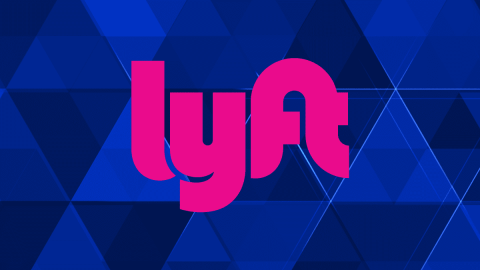Lyft Stock Could Reach $23 in Medium to Long Term: Argus Research
Argus Research has reiterated its Buy rating for Lyft Inc. (NASDAQ: LYFT), raising the target price to $23, citing growth in active riders, rides, and gross bookings. Lyft’s Q3 2024 earnings exceeded expectations, driven by a strategic increase in operational efficiency under CEO David Risher. The ridesharing giant’s third-quarter results reflect improved demand across its platform, further supported by a favorable EBITDA outlook. While competition remains fierce, Lyft’s cost-cutting measures and focused U.S. market presence bolster its long-term profitability outlook.
Third-Quarter Earnings: Strong Performance Across Key Metrics
Higher EPS Beats Estimates
In Q3 2024, Lyft posted adjusted net income of $118.1 million, or $0.29 per diluted share, compared to $0.24 in Q3 2023. This result exceeded Argus’s estimate of $0.16 and the Street’s consensus of $0.20. Lyft’s earnings benefited from increased active riders (up 9% to 24.4 million) and rides (up 16% to 216.7 million), translating to a 16% growth in gross bookings to $4.11 billion.
Revenue and Adjusted EBITDA
Revenue for Q3 rose by 32% year-over-year to $1.523 billion, surpassing the StreetAccount consensus of $1.420 billion. Adjusted EBITDA also jumped 73% year-over-year to $107.3 million, primarily due to heightened demand during morning and evening commute hours.
Target Price and Valuation
Valuation Reflects Optimism for Continued Recovery
Argus has raised Lyft’s target price to $23, implying a potential upside of roughly 23% from current levels. At its current price, Lyft trades at a P/E multiple of 23x on 2024 EPS estimates, aligning with its growth trajectory in the ridesharing market and supported by recent improvements in operational efficiency and cost structure.
Corporate Strategy Under New Leadership
Cost Optimization and Focused Market Presence
Since David Risher assumed the role of CEO, Lyft has implemented strategic cost-saving initiatives, focusing on core U.S. markets to drive efficiency. The company reported a 30% increase in G&A expenses to support new initiatives, with the impact mitigated by operational cost reductions. Lyft’s U.S.-centric approach contrasts with competitors, allowing it to concentrate resources and capitalize on the U.S. market's high demand.
Positive Projections for Q4
Looking ahead to Q4 2024, Lyft anticipates gross bookings in the range of $4.28-$4.35 billion, adjusted EBITDA of $100-$105 million, and an EBITDA margin between 2.3%-2.4%, signaling sustained growth momentum. These estimates represent significant year-over-year growth, underscoring the company’s potential for stable revenue streams.
Financial Strength and Capital Management
Improved Debt Metrics and Cash Reserves
Lyft’s financial strength rating is “Medium-High.” At the end of Q3, its debt/capitalization ratio stood at 56.8%, down from 72.4% in Q3 2023. Lyft’s strong cash flow generation—$264 million in Q3 compared to $2.3 million in the previous year—enhances its flexibility to fund future initiatives and weather market fluctuations.
Focused Use of Cash Without Dividend or Buyback Plans
While Lyft does not currently pay a dividend, its improved cash position indicates potential for reinvestment in business expansion. The company’s cash reserves of $770 million enable it to meet operating requirements and invest in growth opportunities without reliance on external financing.
Growth and Valuation Outlook
Revenue Growth and Profitability Targets
Lyft projects 15% annual gross booking growth through 2027, along with a target adjusted EBITDA margin of 4%. Free cash flow conversion is expected to exceed 90% annually from 2025 to 2027. These targets, discussed at Lyft’s recent Investor Day, signal a promising path toward profitability.
Attractive Discount to Peers
Lyft currently trades at a price-to-sales ratio of 0.9 compared to a peer average of 1.2 and a price-to-book ratio of 6.6 against a peer average of 8.4, offering an attractive entry point for investors. Argus anticipates that Lyft’s valuation discount will narrow as it achieves consistent growth and efficiency under its leaner operational model.
Investment Risks and Competitive Landscape
Challenges in the Ridesharing Market
Lyft faces competition from both traditional ridesharing companies and emerging players in the autonomous vehicle space. Additionally, regulatory risks, such as potential shifts in driver classification laws, could impact Lyft’s cost structure. Economic pressures that reduce discretionary spending may also affect Lyft’s performance in key markets.
Operational and Reputational Risks
As Lyft operates in a competitive, low-barrier market, it must continually invest in technology to attract and retain users. Concerns surrounding platform safety, cybersecurity, and potential legal liabilities may present further challenges to growth.
Conclusion and Investor Recommendation
Argus’s Buy rating on Lyft, with an increased target price of $23, reflects optimism around its improved efficiency, positive demand trends, and strategic U.S.-focused growth model. Lyft’s valuation provides an appealing opportunity within the ridesharing market, particularly for investors seeking exposure to a company positioned for sustainable recovery.
